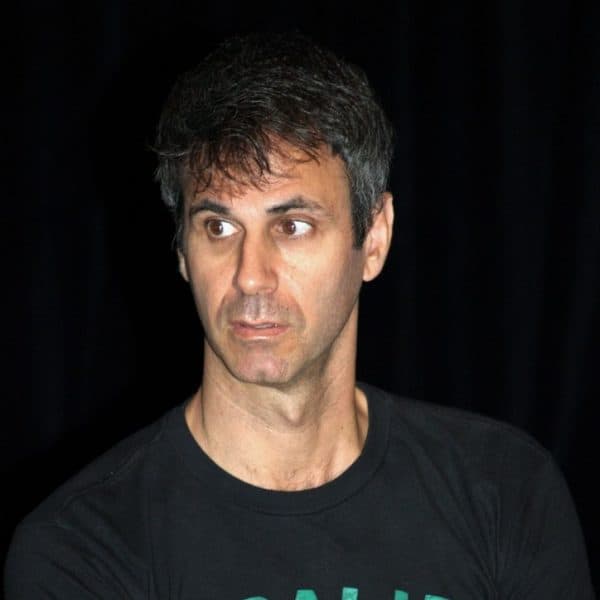Advertisement
Commentary
Why we write

In 1994, when I first started writing fiction, I didn’t even know there was such a thing as a Master of Fine Arts in creative writing. It was my boss—the managing editor of the newspaper where I served as the world’s most anxious investigative reporter—who told me about MFA programs. I remember how he invited me to his apartment on Miami Beach and showed me, with a blushing pride, the stories he'd written in grad school.
Back then, the impulse to write creatively still felt somewhat esoteric. There were only a few dozen writing programs around.
These days, the impulse to write feels mainstream, even pervasive. The number of creative writing programs has skyrocketed, to the point that the annual AWP conference allows more than 10,000 aspiring scribes to gather in various American cities to attend panels, flirt, gossip, and kvetch. This is to say nothing of the creative writing centers, such as Grub Street in Boston, that have proliferated.
To the cynics among us, it’s something of a cruel joke that the impulse to write has gone viral while the number readers among us keeps dwindling. Authors often note—only half in jest—that the only people who attend readings these days are aspiring writers.
Why, then, are so many folks flocking to the keyboard?
I’ve been pondering this for many years, as a teacher of writing and, more recently, the author of a new book about the creative process. The easy answer here, and the least interesting one, is that folks dream of publishing a bestseller feted by Oprah—accompanied by the usual delusions of fame as an antidote to sorrow.
But the deeper motive, from what I’ve seen, is that people write stories to make sense of their lives. They’re going in search of meaning. That’s what storytelling is about.
[P]eople write stories to make sense of their lives. They’re going in search of meaning. That’s what storytelling is about
Many writers start out seeking to be loved and admired; I certainly did. But if they stick with it long enough, their goals become humbler, more intimate: they want to be seen and understood.
I’m thinking of the student I met a few years ago, at a writing conference in Florida. She was a junior in college, majoring in business if I’m remembering correctly. She took a creative writing class as her elective, and as part of the course, had to complete a manuscript consultation with me.
She had written a comedic essay about getting her hair styled as a girl at a cut-rate salon — this was a big deal to her parents. They didn’t have a lot of money, but they believed their daughter was beautiful, and wanted her to have every possible advantage.
The essay was written in such a way that the reader was supposed to laugh. But glints of despair kept showing through her antic descriptions, moments when this grooming ritual sounded more like torture. I didn’t say any of this to her. Mostly, I stuck to line edits. But I did make one comment of a personal nature during our consult: “It seems like there was a lot of pressure on you to be perfect.”
Advertisement
At this, the young woman, whom I had met only a few minutes earlier, whose hair looked worthy of a shampoo commercial, began to weep in quiet convulsions.
This is what I’ve witnessed as a teacher, over and over. People come to writing as a way of going in search of themselves. They are trying to process volatile feelings that went unexpressed in their families of origin, to revisit unresolved traumas. They are writing about what they can’t get rid of by other means.
This applies to fiction, by the way, as well as non-fiction.
I assumed Vonnegut would say something broad and lofty, about man’s inhumanity to man, or the moral chaos of war. Instead, he said this: “I write again and again about my family."
Years ago, I attended a panel discussion that featured my literary hero, Kurt Vonnegut. It was, in fact, one of his last public appearances. During the Q&A, someone in the audience asked Vonnegut what his “essential subject” was.
Having read all of Vonnegut’s books, often multiple times, I assumed Vonnegut would say something broad and lofty, about man’s inhumanity to man, or the moral chaos of war. Instead, he said this: “I write again and again about my family.”
The audience was stunned. But the more I learned about Vonnegut’s life, the more I could see the truth of what he was saying. Beneath all the zany science fiction plot twists and social commentary, he was writing about his kin: the suicidal depression of his mother, the death of his sister, the dangers of scientific progress, which his older brother practiced and preached.
That’s how it works with stories. If they’re any good, they arise from the deepest precincts of our inner life, from your obsessions and fears and desires. Writing is simply a way of commemorating that inner life, and sharing it with the world.
There is no doubt that we are living in an era that is bending away from the inconvenience of writing and reading. Technology has accelerated the mechanisms and incentives of capitalism. We are spending more and more of our time on screens, frantically scrolling, in the thrall of powerful algorithms designed to agitate us, to capture (and thus monetize) our attention.
It can seem absurd, in such a moment, for a human being to sit down alone, in a room, and write a poem, or a story, or an essay, or a novel. But the act of writing is a way of arresting our attention in the midst of all that distraction, and thus reclaiming our humanity.
We’re trying to convince a bunch of strangers to translate our specks of ink into stories capable of generating rescue.
When I read a beautiful story, I feel as if I’m a little kid again and something very sad has happened. It’s winter and night has blackened the branches above, I’m very stirred up, close to tears actually, because I can see—I’ve been made to see—the sorrow that everyone is lugging around, and the cruel things this sorrow makes them do, and still I want to forgive them. I want to forgive every last one of them. God, I love that feeling.
